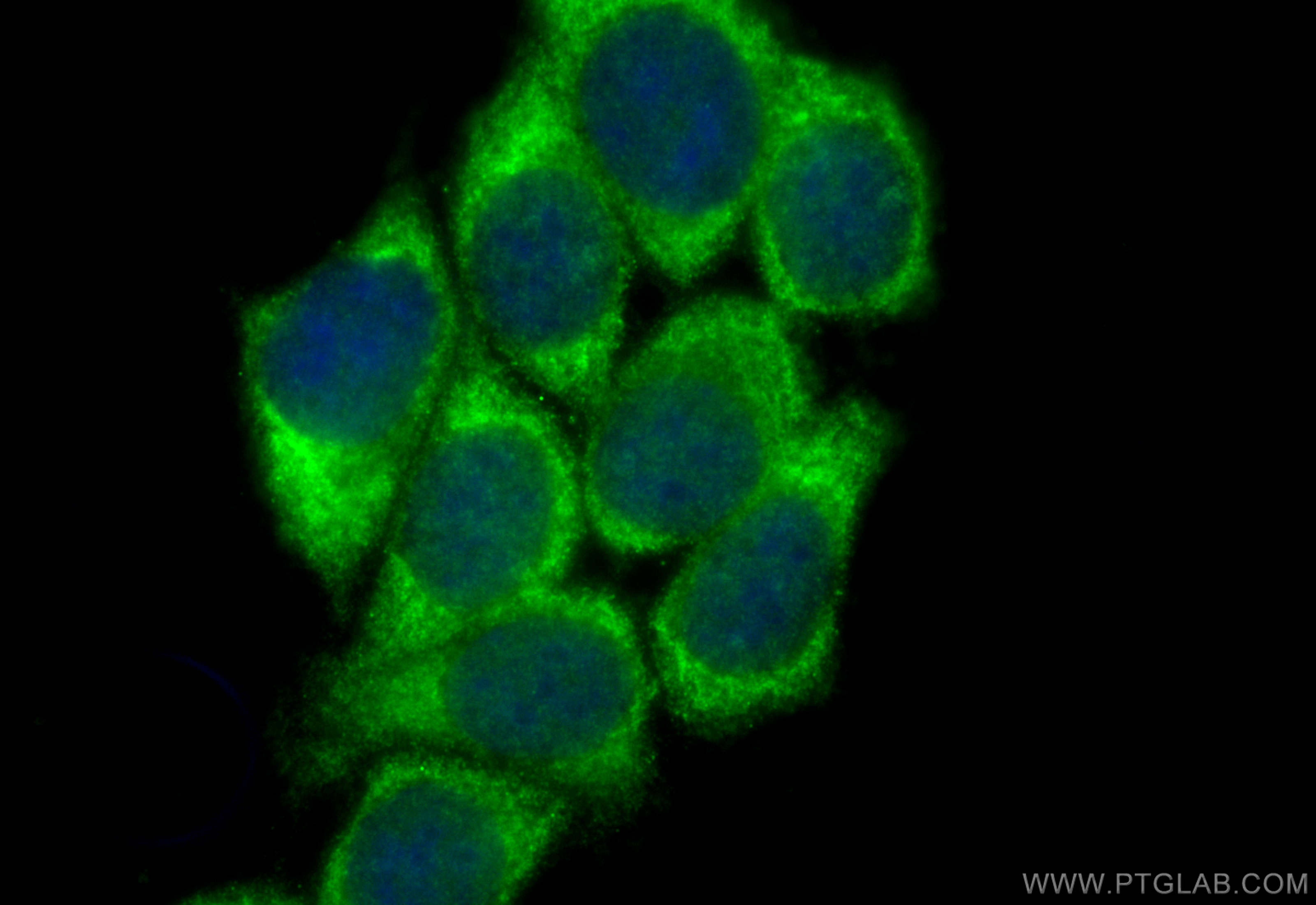验证数据展示
经过测试的应用
| Positive IF/ICC detected in | MCF-7 cells |
For other applications, we recommend the unconjugated version of this antibody, 82938-1-PBS
推荐稀释比
| 应用 | 推荐稀释比 |
|---|---|
| Immunofluorescence (IF)/ICC | IF/ICC : 1:50-1:500 |
| It is recommended that this reagent should be titrated in each testing system to obtain optimal results. | |
| Sample-dependent, Check data in validation data gallery. | |
产品信息
CL488-82938 targets PI4KA in IF/ICC applications and shows reactivity with human, mouse, rat samples.
| 经测试应用 | IF/ICC Application Description |
| 经测试反应性 | human, mouse, rat |
| 免疫原 | PI4KA fusion protein Ag3062 种属同源性预测 |
| 宿主/亚型 | Rabbit / IgG |
| 抗体类别 | Recombinant |
| 产品类型 | Antibody |
| 全称 | phosphatidylinositol 4-kinase, catalytic, alpha |
| 别名 | |
| 计算分子量 | 2044 aa, 231 kDa |
| 观测分子量 | 231 kDa |
| GenBank蛋白编号 | BC018120 |
| 基因名称 | PI4KA |
| Gene ID (NCBI) | 5297 |
| RRID | AB_3673147 |
| 偶联类型 | CoraLite® Plus 488 Fluorescent Dye |
| 最大激发/发射波长 | 493 nm / 522 nm |
| 形式 | Liquid |
| 纯化方式 | Protein A purification |
| UNIPROT ID | P42356 |
| 储存缓冲液 | PBS with 50% glycerol, 0.05% Proclin300, 0.5% BSA , pH 7.3 |
| 储存条件 | Store at -20°C. Avoid exposure to light. Stable for one year after shipment. Aliquoting is unnecessary for -20oC storage. |
背景介绍
PI4KA, also named as PIK4, PIK4CA, belongs to the PI3/PI4-kinase family and Type III PI4K subfamily. It acts on phosphatidylinositol (PtdIns) in the first committed step in the production of the second messenger inositol-1,4,5,-trisphosphate. PI4KA plays a role in the formation of membrane complexes where HCV replication takes place. (PMID:19605471).
实验方案
| Product Specific Protocols | |
|---|---|
| IF protocol for CL Plus 488 PI4KA antibody CL488-82938 | Download protocol |
| Standard Protocols | |
|---|---|
| Click here to view our Standard Protocols |
